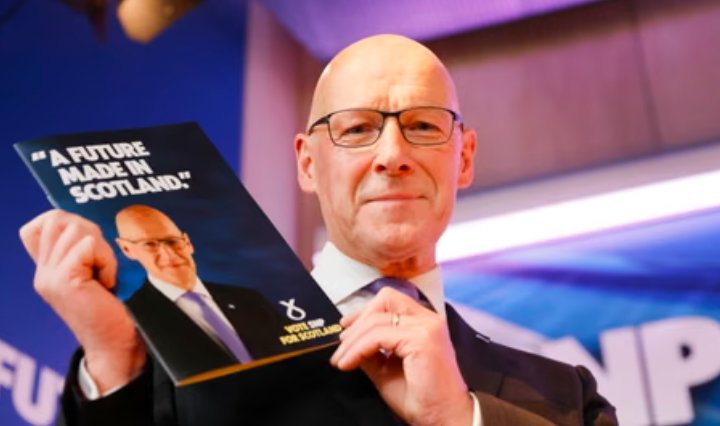EDINBURGH – Scottish First Minister John Swinney has unveiled a fresh independence strategy centred around building majority support, mobilising democratic pressure on Westminster, and securing a decisive Scottish National Party (SNP) victory at the 2026 Holyrood elections—while new polling suggests growing European support for Scotland’s return to the EU as an independent state.
Writing in The National on Thursday, Swinney declared that independence remains the SNP’s “central political goal,” and described his plan as a “renewed strategy” designed to capitalise on rising dissatisfaction with Westminster and shifting attitudes across Europe.
“In 2014, many believed Westminster could still be fixed. But this time, we must win,” Swinney wrote.
The Three Pillars of Swinney’s Strategy
Swinney’s roadmap rests on three core pillars:
-
First, he aims to rebuild popular backing for independence, citing the 1997 devolution referendum as a benchmark when 74% of Scots voted for the creation of a Scottish Parliament. The goal, Swinney says, is to generate “the highest levels of support possible” for leaving the UK.
-
Second, the strategy seeks to amplify what Swinney calls “democratic outrage” over Westminster’s continued refusal to authorise a new referendum. The UK Supreme Court ruled in 2022 that Holyrood lacks the legal authority to hold a unilateral vote on independence, effectively tying Scotland’s constitutional future to UK Government consent.
-
Third, Swinney says the SNP must secure an “emphatic” victory at the next Holyrood election, due in 2026. He argued that electoral strength is essential: “Only when the SNP is doing well is there any prospect of advancing Scotland’s constitutional cause.”
The announcement reflects a strategic recalibration following a period of political turbulence for the SNP, including the resignation of Swinney’s predecessor Humza Yousaf and a disappointing performance at the 2024 UK General Election, which saw the party lose ground to both Labour and the surging Reform UK.

Starmer Pushes Back as Polls Tighten
UK Prime Minister Keir Starmer, who leads a Labour government with a substantial Commons majority, swiftly dismissed the prospect of a second independence referendum. Speaking last week, Starmer remarked that Swinney had “not raised independence” in their recent discussions and reiterated that his focus remains on economic stability and reform.
Despite that, the latest YouGov polling conducted in June shows a narrow majority in favour of independence, with 51% of Scots backing Yes and 49% opposing—within the margin of error but suggestive of a potentially durable lead.
A Europe-Backed Return to the EU?
Crucially, Swinney is again anchoring the independence case in the context of European integration—a message calibrated to resonate in post-Brexit Scotland, where 62% of voters opted to remain in the European Union during the 2016 referendum.
A new YouGov survey conducted across six EU nations found strong support for Scotland’s accession to the bloc in the event of independence:
| Country | Support for Scottish EU Membership |
|---|---|
| Denmark | 75% |
| Germany | 68% |
| Spain | 65% |
| France | 63% |
| Italy | 64% |
| Rest of Britain | 46% |
“This data highlights the positive sentiment towards Scotland in Europe,” Swinney said in a separate statement, arguing that Scotland’s return to the EU would bring “stability, opportunity, and security” amid a period of global economic uncertainty.
“I firmly believe Scotland’s best future lies as an independent country within the EU,” Swinney said.
Brexit Still a Flashpoint
Brexit continues to be a key grievance for pro-independence voters. Despite Scotland voting overwhelmingly to remain, it was compelled to leave alongside the rest of the UK. Swinney’s renewed focus on re-joining the EU is designed to sharpen the contrast between Scottish and UK-wide political paths, particularly under a Labour government that has ruled out any return to the single market or customs union.
With one year to go before the next Holyrood elections, Swinney’s challenge will be to revitalise a movement that has lost momentum in recent months and rebuild trust in a party navigating scandal, leadership changes, and a changing political landscape.


















